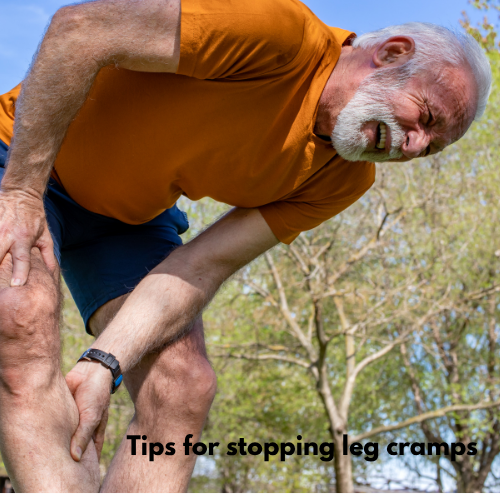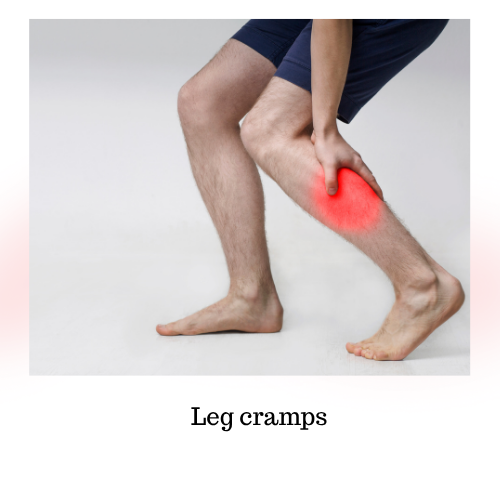Why Do I Get Leg Cramps? The TCM Guide to Herbal Relief That Actually Works
What’s Really Causing Your Leg Cramps?
Whether they strike at night or during a workout, leg cramps can feel like your muscles are staging a rebellion. In Western terms, they’re often blamed on dehydration, electrolyte imbalance, overexertion, or poor circulation.
But in Traditional Chinese Medicine (TCM), leg cramps are the body’s way of saying, “Help—I’m out of balance!”

Understanding Leg Cramps in TCM
In Traditional Chinese Medicine (TCM), leg cramps are often attributed to imbalances in the body's Qi (energy), Blood, and organ systems, particularly the Liver and Kidney. Common TCM patterns associated with leg cramps include:
-
Liver Blood Deficiency: Insufficient nourishment to the muscles and tendons.
-
Kidney Yin Deficiency: Lack of cooling and moistening aspects leading to muscle tightness.
-
Qi and Blood Stagnation: Impaired circulation causing pain and cramps.
-
Wind-Cold-Damp Invasion: External pathogens obstructing the meridians.
Why Do We Get Leg Cramps?
While dehydration and electrolyte imbalances are commonly cited causes, leg cramps can result from various factors:
-
Electrolyte Imbalances: Deficiencies in magnesium, calcium, or potassium can lead to muscle cramps.PubMed+4PubMed+4Wikipedia+4
-
Dehydration: Insufficient fluid intake affects muscle function.
-
Overexertion or Prolonged Inactivity: Intense exercise or extended periods of sitting/standing can trigger cramps.
-
Medications: Certain drugs, like diuretics and statins, may cause cramps as side effects.
-
Medical Conditions: Conditions such as diabetes, hypothyroidism, or peripheral artery disease can contribute to cramping.
-
Pregnancy: Hormonal changes and increased pressure on nerves can lead to cramps.
-
Nutritional Deficiencies: Lack of B vitamins, especially B1 and B6, may play a role.
Safety Considerations
-
Consult a Healthcare Provider: Especially important if you have underlying health conditions or are taking medications.
-
Pregnancy and Nursing: Some herbs may not be safe; always consult a professional.
-
Allergies and Interactions: Be aware of potential allergic reactions and herb-drug interactions.
-
Dosage and Quality: Use high-quality, standardized herbal products and adhere to recommended dosages.
Frequently Asked Questions (FAQs)
Q: Why do I only get leg cramps at night?
A: Nighttime leg cramps may be due to prolonged inactivity, electrolyte imbalances, or underlying health conditions.
Q: Are leg cramps related to circulation or nerves?
A: Yes, poor circulation and nerve compression can contribute to leg cramps.
Q: Which medications cause leg cramps?
A: Diuretics, statins, and certain blood pressure medications are known to cause cramps as side effects.
Q: Is there a difference between leg cramps and restless leg syndrome?
A: Yes, leg cramps involve sudden muscle contractions, while restless leg syndrome is characterized by an uncontrollable urge to move the legs.
Q: Can children or seniors use these herbs safely?
A: Some herbs may be safe, but it's essential to consult a healthcare provider for age-appropriate recommendations.
Q: Are there quick-fix remedies for cramps during travel or work?
A: Staying hydrated, stretching, and using topical magnesium sprays can provide quick relief.
How fast do Chinese herbs work for leg cramps?
-
Some formulas offer relief within hours, but best results often come after a few days of consistent use.
Can I take these herbs daily?
-
Yes—many are safe for long-term use when properly dosed. Always consult a qualified practitioner.
PubMed-Backed Research
-
Shao Yao Gan Cao Tang: Effective for muscle cramping in hemodialysis patients (PubMed)
-
Gou Teng: Neuroprotective and antispasmodic properties (PubMed)
-
Dang Gui: Supports circulation and blood building (PubMed)


